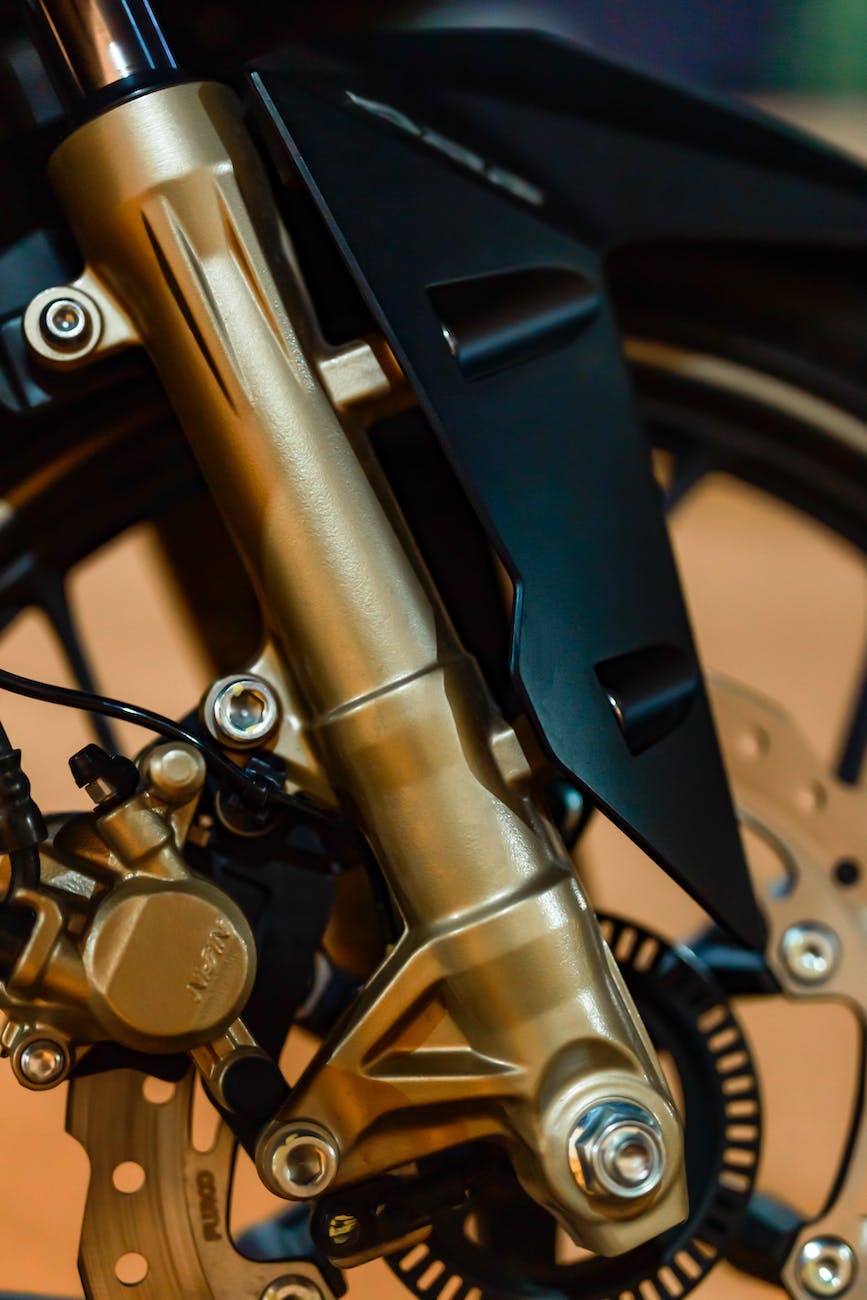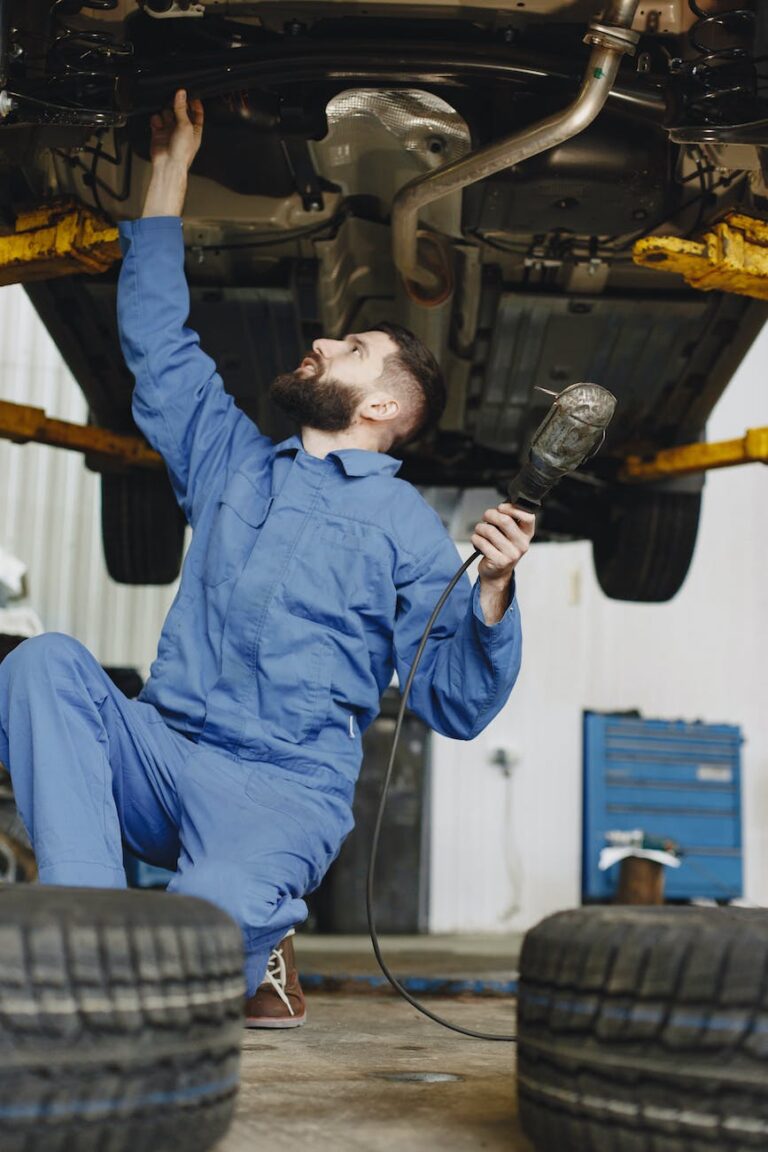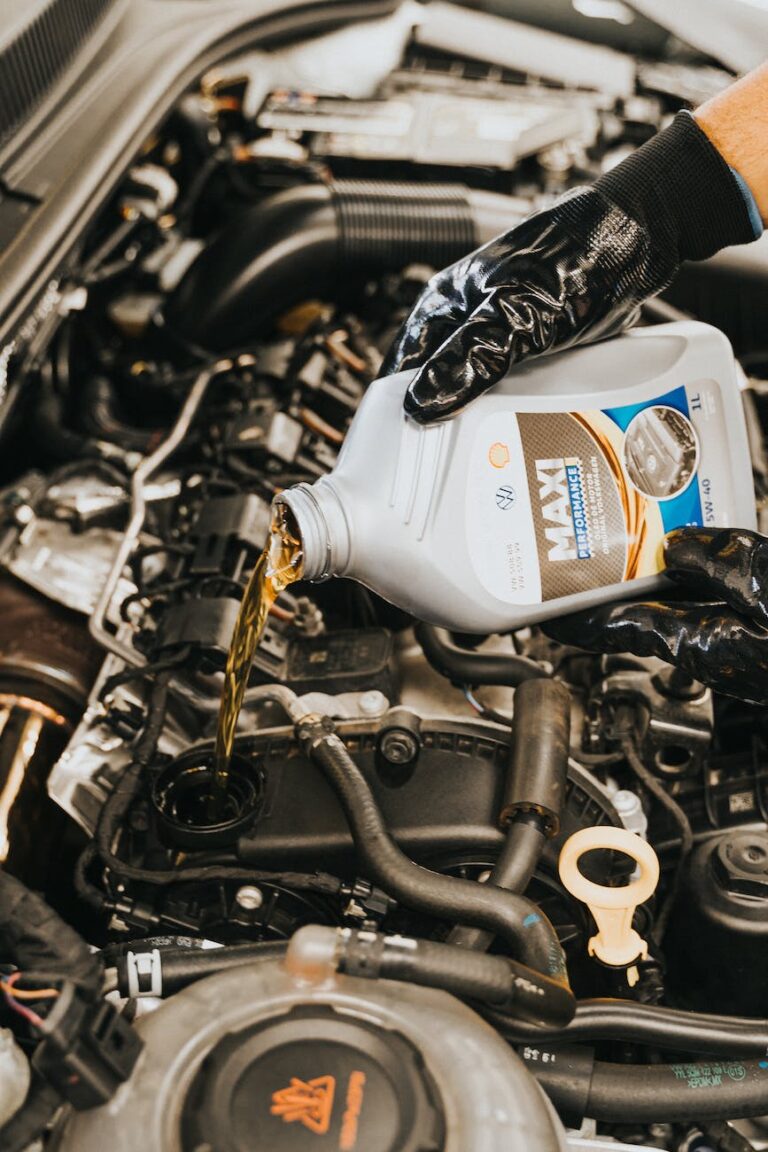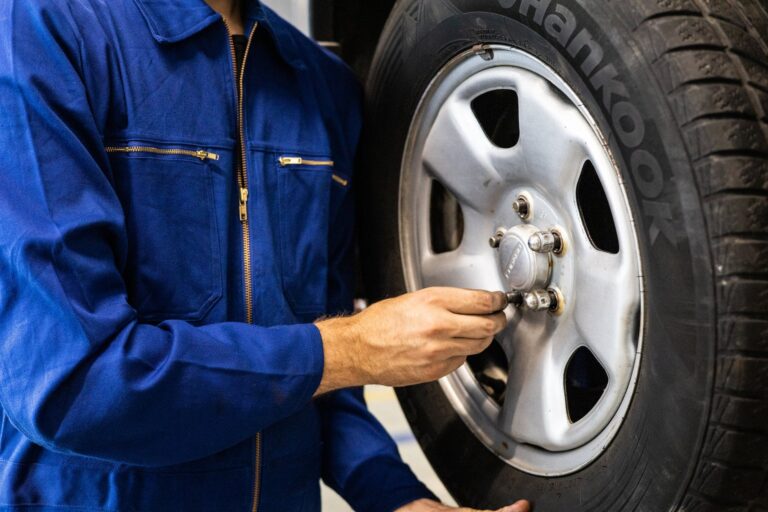Understanding Brake Services
When it comes to car maintenance, brake services are of utmost importance. Proper brake maintenance ensures the safety and reliability of your vehicle, allowing you to drive with confidence. Brake mechanics play a crucial role in diagnosing and repairing any issues with the brakes of a vehicle (Tyres Online). Let’s delve into the importance of brake maintenance and the role of brake mechanics in more detail.
Importance of Brake Maintenance
Brakes are one of the most critical components of a vehicle. They allow you to slow down and stop your car safely. Regular brake maintenance is essential to ensure optimal performance and prevent potential accidents. By keeping your brakes in good condition, you can:
- Maintain proper stopping power: Well-maintained brakes provide the necessary stopping power, allowing you to stop your vehicle safely and efficiently.
- Enhance safety: Brake issues can compromise your safety on the road. Regular maintenance helps identify and address any problems, reducing the risk of accidents.
- Extend brake system lifespan: Regular inspections and maintenance can help identify and resolve minor issues before they become major problems. This can extend the lifespan of your brake system and save you from costly repairs.
To ensure your brakes are properly maintained, it’s recommended to schedule regular brake inspections and adhere to the manufacturer’s recommended maintenance schedule. This includes brake pad and rotor replacement, as well as checking the brake fluid level and quality. Visit our article on brake maintenance for more information on how to keep your brakes in top condition.
Role of Brake Mechanics
Brake mechanics are automotive professionals with specialized knowledge and expertise in brake systems. They are responsible for diagnosing and repairing any issues with the brakes of a vehicle. These skilled technicians have undergone training and possess the necessary skills to ensure the proper functioning of your brakes.
The role of a brake mechanic involves:
- Brake system inspection: Brake mechanics perform thorough inspections to identify any signs of wear, damage, or malfunction in the brake system. This includes checking the brake pads, rotors, calipers, brake lines, and fluid levels.
- Diagnosis of brake issues: If any problems are detected during the inspection, brake mechanics use their expertise to diagnose the specific issues affecting your brakes. This may involve conducting tests, using diagnostic equipment, and assessing the overall condition of the brake system.
- Brake repairs and replacements: Once the issues are identified, brake mechanics perform the necessary repairs or replacements to restore the proper functioning of the brake system. This may involve replacing brake pads, rotors, calipers, or repairing brake lines.
- Ensuring quality and safety: Brake mechanics ensure that all repairs and replacements are done according to manufacturer specifications. They prioritize safety and quality, ensuring that your brakes are in optimal condition and meet the necessary standards.
When seeking brake services, it’s important to choose a reputable brake repair shop or service center that employs qualified brake mechanics. This ensures that your vehicle receives top-quality service and that any brake issues are addressed effectively. If you’re looking for brake services near you, visit our article on brake service near me to find a trusted service provider.
By understanding the importance of brake maintenance and the role of brake mechanics, you can prioritize the health of your vehicle’s braking system. Regular brake inspections and maintenance, performed by skilled professionals, will help keep your brakes in optimal condition and ensure your safety on the road.
Signs of Brake Issues
To ensure the safety and optimal performance of your car, it’s crucial to be aware of the signs that indicate potential brake issues. Recognizing these signs allows you to address any problems promptly and seek the assistance of a professional brake mechanic if needed.
Squeaking or Squealing Brakes
If you hear squeaking or squealing noises when applying the brakes, it could be an indication of worn brake pads. Over time, the friction material on the brake pads wears down, causing them to become less effective and produce these noises. It is recommended to have the brake pads inspected and replaced if necessary (KBB). Regular inspections and replacing the brake pads every 30,000-70,000 miles can help maintain optimal brake performance and prevent further damage (Source).
Vibrating or Pulsating Brake Pedal
A vibrating or pulsating sensation in the brake pedal can be a sign of a warped brake rotor. Brake rotors can become warped due to excessive heat or prolonged heavy braking. When the rotor is not perfectly smooth, it causes the brake pads to make uneven contact, leading to vibrations during braking. Resurfacing or replacing the brake rotors can eliminate the vibrations and restore smooth braking (KBB). If you experience such vibrations, it is recommended to have your brake system inspected by a qualified brake mechanic to diagnose and resolve the issue (Source).
Soft or Spongy Brake Pedal
If your brake pedal feels soft or spongy when you press it, it may indicate the presence of air in the brake lines. Air can enter the brake lines due to a leak or improper bleeding of the system. When air is present, it compromises the brake fluid’s ability to transmit force, resulting in a soft and less responsive brake pedal. To resolve this issue, the brake system needs to be bled to remove the air and ensure proper brake function. It is recommended to have a professional brake mechanic perform the brake bleeding process to ensure its effectiveness and safety (KBB).
Being attentive to these signs of brake issues is essential for maintaining the safety and reliability of your car. If you notice any of these symptoms, it is advisable to consult a qualified brake mechanic who can diagnose the problem accurately and provide the necessary repairs or maintenance. Remember, timely brake inspections and addressing any potential issues promptly can help prevent more extensive and costly repairs in the future.
Common Brake Problems
Maintaining the effectiveness of your car’s braking system is crucial for your safety on the road. However, over time, certain issues can arise that require attention from a professional brake mechanic. In this section, we will explore three common brake problems: worn brake pads, damaged brake rotors, and air in the brake lines.
Worn Brake Pads
Brake pads are one of the most commonly replaced components in a braking system. They are designed to create friction against the brake rotors, enabling your vehicle to slow down and stop. However, due to this constant friction, brake pads wear down over time. The lifespan of brake pads can vary depending on driving habits and conditions, but they typically need to be replaced every 30,000 to 70,000 miles (KBB).
One of the key signs of worn brake pads is a squeaking or squealing noise when braking. This noise is often caused by a wear indicator that is built into the brake pads themselves. When the brake pads become thin, the indicator starts to rub against the rotor, producing the distinct noise. If you hear these noises, it is important to have your brake pads inspected and replaced if necessary. For more information on brake pads replacement, visit our article on brake pads replacement.
Damaged Brake Rotors
The brake rotors, also known as brake discs, work in conjunction with the brake pads to help stop your vehicle. Over time, the constant friction and heat generated during braking can cause wear and tear on the rotors. Additionally, factors such as aggressive driving, heavy loads, and high-speed braking can contribute to rotor damage.
One common issue with brake rotors is warping, which can lead to vibrations or pulsations when applying the brakes. Warping occurs when the rotors become uneven, preventing the brake pads from making consistent contact. If you experience vibrations or pulsations, it is recommended to have your brake rotors inspected and machined or replaced, if necessary. Learn more about brake rotor replacement in our dedicated article on brake rotor replacement.
Air in Brake Lines
A soft or spongy brake pedal can be a sign of air in the brake lines. Air can enter the brake system during brake pad replacement, brake fluid leaks, or other maintenance procedures. When air is present, it can compress, leading to a loss of brake pedal feel and reduced braking performance. Bleeding the brake system is typically necessary to remove the air and restore proper brake function.
Another potential cause of a soft brake pedal is a brake fluid leak. Brake fluid is essential for transferring the force applied on the brake pedal to the brake calipers, which then apply pressure to the brake pads. If there is a leak in the brake system, it can result in a loss of brake fluid and a soft pedal feel. It is important to have brake fluid leaks repaired promptly to ensure optimal brake performance and safety.
If you encounter a soft brake pedal or suspect air in the brake lines, it is recommended to have your brake system inspected and any necessary repairs performed by a qualified brake mechanic. For more information on brake services, including brake fluid flush and brake line repair, visit our article on brake services.
By addressing common brake problems promptly, you can ensure the safety and reliability of your vehicle’s braking system. Regular brake inspections, maintenance, and repairs are essential to keep your brakes functioning optimally and provide you with peace of mind while on the road. Remember to consult a professional brake mechanic whenever you encounter any signs of brake issues to ensure proper diagnosis and resolution.
Brake Maintenance Tips
Proper brake maintenance is essential for ensuring the safety and performance of a vehicle’s braking system (Tyres Online). By following these tips, you can keep your brakes in optimal condition and address any potential issues before they become major problems.
Regular Brake Inspections
Regular brake inspections are crucial for identifying any signs of wear or damage early on. It is recommended to have your brakes inspected by a professional at least once a year or every 12,000 miles, whichever comes first. During a brake inspection, a qualified mechanic will check the condition of the brake pads, rotors, calipers, brake lines, and other components of the braking system.
By having your brakes inspected regularly, you can detect issues such as worn brake pads, damaged brake rotors, or air in the brake lines before they lead to more serious problems. Timely inspections can prevent costly repairs and ensure that your brakes are functioning properly.
Brake Pad and Rotor Replacement
Brake pads and rotors are critical components of the braking system that deteriorate over time. Monitoring the width of the brake pads is important, as they wear down with use. If the pads become too thin, it can affect the braking performance and potentially cause damage to other components (Tyres Online).
It is recommended to have the rear brake pads checked and replaced if necessary during regular brake maintenance to ensure balanced braking performance (Tyres Online). When brake pad replacement is required, it is often necessary to replace the brake rotors as well. This helps to maintain optimal braking performance and prevent issues such as brake noise and vibration.
Importance of Brake Fluid
Brake fluid plays a crucial role in the braking system by transmitting hydraulic pressure to the brake components. Over time, brake fluid can attract moisture, which can be highly damaging to the braking system. Moisture in the brake fluid causes corrosion of the metal components and reduces the boiling point and effectiveness of the brakes (Action Gator Tire).
To maintain the integrity of your braking system, it is important to have your brake fluid checked and changed regularly. The recommended interval for brake fluid change is typically every 25,000 miles. However, it is important to consult your vehicle’s owner’s manual or consult with a professional mechanic to determine the specific interval for your vehicle.
During a brake fluid change, the old fluid is flushed out, and fresh fluid is added. This helps to remove any contaminants and reduce the risk of brake fluid leaks or other brake system issues. Regular brake fluid changes ensure that your brakes perform optimally and provide reliable stopping power when you need it.
By adhering to these brake maintenance tips, you can ensure that your braking system remains in top condition. Regular inspections, timely brake pad and rotor replacements, and proper maintenance of brake fluid are key to keeping your brakes functioning effectively and safely on the road. If you’re in need of brake services, including inspections, pad replacements, or fluid changes, you can find a professional brake mechanic near you by visiting our brake service locator.
Upgrading Brake Components
When it comes to maintaining and improving the performance of your car’s braking system, upgrading and replacing brake components can make a significant difference. Two popular upgrade options are slotted disc brakes and ceramic brake pads. Let’s explore these options and the benefits they offer.
Slotted Disc Brakes
Slotted disc brakes are an upgrade option that provides better heat dissipation, reducing the risk of brake fade and improving overall braking performance (Action Gator Tire). The slots on the brake rotor allow for better ventilation, which helps to dissipate heat more efficiently. This is particularly beneficial during intense braking situations, such as when driving downhill or towing heavy loads.
By reducing heat buildup, slotted disc brakes help to maintain consistent braking performance. This means you can rely on your brakes to perform optimally even in demanding conditions. Additionally, slotted disc brakes can also improve wet weather braking performance by efficiently channeling water away from the rotor surface, reducing the risk of hydroplaning.
Ceramic Brake Pads
Ceramic brake pads are another popular upgrade choice for car owners looking to enhance their braking system. These brake pads offer several advantages compared to traditional organic or semi-metallic brake pads. Ceramic brake pads are known for their quieter operation, reduced brake dust production, and consistent braking performance even under high temperatures (Action Gator Tire).
One of the main benefits of ceramic brake pads is their ability to reduce brake noise. They generate less noise during braking, providing a quieter and more comfortable driving experience. Additionally, ceramic brake pads produce less brake dust, which helps to keep your wheels cleaner for longer periods.
Ceramic brake pads also have excellent heat resistance properties, making them well-suited for high-performance driving. They can withstand higher temperatures without sacrificing braking performance, making them a reliable choice for demanding driving conditions.
Benefits of Upgrading
Upgrading to slotted disc brakes or ceramic brake pads can enhance the overall braking performance of your vehicle. These upgrades provide several benefits, including:
-
Improved stopping power: Slotted disc brakes and ceramic brake pads offer enhanced stopping power compared to standard brake components. This means you can achieve shorter stopping distances, providing increased safety on the road.
-
Reduced brake fade: Brake fade occurs when the brakes lose their effectiveness due to excessive heat buildup. Upgraded brake components, such as slotted disc brakes and ceramic brake pads, help to dissipate heat more efficiently, reducing the risk of brake fade and maintaining consistent braking performance.
-
Quieter operation: Ceramic brake pads produce less noise during braking, resulting in a quieter driving experience. This can be particularly beneficial for those who value a smooth and peaceful ride.
-
Less brake dust accumulation: Ceramic brake pads generate less brake dust compared to traditional brake pads. This not only helps to keep your wheels cleaner, but it also reduces the frequency of wheel cleaning and maintenance.
-
Improved durability: Slotted disc brakes and ceramic brake pads are designed to be more durable and long-lasting compared to standard brake components. This means you can enjoy the benefits of enhanced braking performance for an extended period.
By upgrading to slotted disc brakes or ceramic brake pads, you can enhance the overall safety, performance, and durability of your vehicle’s braking system. However, it’s important to consult with a professional brake mechanic to ensure compatibility with your specific vehicle make and model. They can provide expert advice on the best upgrade options for your car.
Remember, regular brake maintenance and inspections are crucial to ensure the optimal performance of your braking system. If you’re interested in learning more about brake services, costs, and maintenance, check out our article on brake services and brake service cost.
Brake Services and Costs
When it comes to brake maintenance, understanding the various services available and their associated costs is essential. This section provides an overview of brake services, the average cost of brake pad replacement, and the factors that can influence brake service costs.
Brake Service Overview
Brake services encompass a range of maintenance and repair tasks designed to ensure the optimal performance and safety of your vehicle’s braking system. Whether it’s addressing issues with brake pads, rotors, or brake fluid, regular brake service is crucial for maintaining reliable stopping power and preventing potential brake failures.
Common brake services include:
- Brake pad replacement: Over time, brake pads wear down and require replacement to ensure effective braking. This is one of the most common brake services performed. brake pads replacement
- Brake rotor resurfacing or replacement: The rotors, which the brake pads clamp onto, can become worn or warped and may need resurfacing or replacement to ensure smooth and even braking. brake rotor replacement
- Brake fluid flush: Over time, brake fluid can become contaminated or lose its effectiveness. Flushing the brake system and replacing the fluid helps maintain proper brake performance. brake fluid flush
- Brake line repair: Damaged or corroded brake lines can compromise brake performance and safety. Repairing or replacing these lines is essential for maintaining proper brake function. brake line repair
- Brake system check: Regular inspections of the entire brake system help identify potential issues early on and ensure that all components are functioning correctly. brake inspection
Average Cost of Brake Pad Replacement
One of the most common brake services is brake pad replacement. The cost of this service can vary depending on factors such as the type of vehicle and the type of brake pads being used. According to KBB, the average cost for a brake pad replacement ranges from $150 to $300 per axle.
It’s important to note that this is an average cost estimate and prices can vary based on the specific vehicle make and model, as well as the location and the service provider. Additionally, the cost can be influenced by the type and quality of brake pads chosen (e.g., standard, ceramic, or performance pads). For a precise cost estimate, it is recommended to consult with a trusted brake service provider.
Factors Affecting Brake Service Costs
Several factors can influence the overall cost of brake service. These factors include:
- Vehicle type: Different vehicles have varying brake system components and designs, which can impact the complexity of the service and the cost involved.
- Extent of brake repair: The extent of brake repair needed, such as rotor resurfacing, caliper replacement, or brake line repair, can contribute to the overall cost.
- Location: Service costs can vary by location due to differences in labor rates and local market conditions.
- Brake parts quality: The brand and quality of the brake parts being used can affect the cost. Higher-end or performance brake components may come at a higher price point.
- Additional services: Additional services or repairs, such as brake rotor replacement or brake caliper rebuild, can add to the overall cost of brake service.
It’s important to keep in mind that these factors can vary, and it’s advisable to consult with a reputable brake service provider to obtain an accurate cost estimate based on your specific circumstances.
Understanding the range of brake services available, the average cost of brake pad replacement, and the factors that can affect brake service costs will help you make informed decisions when it comes to maintaining and servicing your vehicle’s braking system.
Ensuring Brake Safety
To ensure the safety and optimal performance of your vehicle’s braking system, it’s crucial to consider various factors that can impact brake performance. In this section, we will explore the external factors that can affect brake performance, the importance of proper brake selection, and the role of choosing the right tires for optimal brake performance.
External Factors Impacting Brake Performance
Proper brake maintenance is essential for ensuring the safety and performance of your vehicle’s braking system (Tyres Online). However, there are external factors that can impact brake performance as well. Harsh driving, heavy loads, and prolonged braking can contribute to increased wear and tear on the brakes, reducing their effectiveness over time (Action Gator Tire). It’s important to be mindful of these factors and drive responsibly to maintain optimal brake performance.
Importance of Proper Brake Selection
Proper brake selection is crucial for ensuring optimal performance and safety. Brake systems are designed to work in conjunction with the specific vehicle they are installed on. Choosing the right brake system components, such as brake pads, rotors, and calipers, that are compatible with your vehicle is essential for achieving reliable and efficient braking performance.
When selecting brake components, it’s important to consider factors such as the vehicle’s weight, driving conditions, and intended use. Different vehicles may have specific requirements for brake system parts, so it’s advisable to consult the manufacturer’s recommendations or seek guidance from a professional brake mechanic. Proper brake selection will ensure that the braking system is capable of providing the necessary stopping power for your specific vehicle.
Choosing the Right Tires for Brake Performance
The selection of tires can also have a significant impact on brake performance. Rear tires, in particular, play a crucial role in the overall braking performance of a vehicle. The right rear tires can provide better traction and stability, enhancing the effectiveness of the brakes, especially during emergency stops or on slippery surfaces. It’s important to choose tires that are suitable for your driving conditions and ensure they are properly inflated and in good condition.
Regular tire maintenance, including proper tire rotation and tread depth checks, is essential for optimal braking performance. Worn-out or damaged tires can compromise the vehicle’s overall handling and braking capabilities. Consulting a tire professional or referring to the manufacturer’s recommendations can help you select the right tires for your vehicle, considering factors such as tire size, tread pattern, and load rating.
By taking into account external factors, selecting the appropriate brake components, and choosing the right tires, you can ensure the safety and effectiveness of your vehicle’s braking system. Regular brake maintenance, including inspections, brake pad and rotor replacement, and brake fluid checks, is essential for optimal brake performance. If you’re in need of brake services, it’s advisable to seek assistance from a reputable brake repair shop or consider mobile brake services for added convenience. Remember, prioritizing brake safety is essential for a smooth and secure driving experience.







